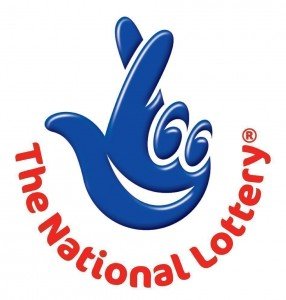There’s a good article in the Guardian today about where the money raised by the National Lottery is spent:
The varying returns seen in 2000 may still persist: 128 constituencies have already received at least ?1m in lottery grants so far this year, while 125 have had less than ?100,000.
_
Poplar and Limehouse, boosted by a large grant for the Olympics aquatic centre, has received more than ?34m in lottery grants in 2011 ? 10,000 times more than the ?3,488 awarded so far this year to the Essex constituency of Rayleigh and Wickford.
_
More than ?26bn has been distributed to good causes through the national lottery, which donates 28p to charity for each ?1 ticket sold, since its launch. However, the perception that the money may not be fairly distributed concerns MPs.
You can find the data here.
The 5 constituencies that have received the most money so far this year are all in London:
1st Poplar and Limehouse ?34,450,465
2nd Islington South and Finsbury ?15,102,479
3rd Enfield North ?10,920,878
4th Cities of London and Westminster ?8,020,607
5th Brentford and Isleworth ?7,208,555
Rochford and Southend East does pretty well : ?1,035,977
But look at the bottom 5:
646th Reigate ?18,690
647th Surrey Heath ?15,051
648th Kingswood ?10,116
649th Gosport ?9,792
650th Rayleigh and Wickford ?3,488
That’s right. Rayleigh and Wickford constituency come bottom of the whole UK. Even the place that comes 649th gets about three times as us. That ?3,348 is roughly 5p per person per year.
Why is this?
Things seem even worse than when this Guardian article was written in 2003. It highlights Rayleigh Cricket Club’s success in getting funding:
Rayleigh Cricket Club’s new ground: a modern, wooden pavilion with a bar; a row of car-parking spaces; and a perfectly bedded-down pitch in the centre.
_
The ground will cost ?135,000 and Dawbarn, retired civil servant and club chairman, has been the force behind securing the cash. By June, the 60 youngsters he and his fellow coaches have enticed into the club will be enjoying the benefits of the new facilities.
_
This fundraising story is in one sense unexceptional: countless similar minor feats underpin the vitality of Britain’s voluntary and community life. But in Rayleigh, Dawbarn has done something remarkable: he has secured ?74,219 of lottery money. In eight years, and ?13bn of national lottery good causes funding, Rayleigh and the scattering of towns and villages that make up the district of Rochford have between them attracted less funding than any other council area of the UK.
The Guardian asked our Council Chief Executive Paul Warren:
“We’re a district that isn’t poor enough to qualify; we’re not rural enough, we’re not urban enough, we don’t have wards deprived enough – even though parts of the district have deprivation in a concentrated way.” Rochford, Warren laments, “just slips through the net”.
It is simply not credible to suggest that all Rochford’s eligible arts, sports and community groups do not bother to apply for lottery money because they know they will fail the regional criteria. More likely is a combination of people not knowing the money is there, and their being put off by the process. Almost anyone who has ever dabbled in the art of constructing a lottery bid will recite the same mantra about how hard it is, despite many improvements in the applications system over the years.
These figures may not tell the full story. It’s not totally clear how these figures are calculated. Monies sent to an address in Rochford , or in Chelmsford, might still be spent for the benefit or Rayleigh and Wickford residents. But even so, these figures still look dreadful.
We are not the poorest part of Britain. But we ain’t the richest either. And we need more facilities. The District Council needs to take a lead on this. Sadly, we don’t have a West Area Committee any more to discuss this sort of issue. And no Rayleigh or Hullbridge councillors – of any political party – are now allowed to speak at the important council cabinet meetings.
Let’s see what we can do -councillors, officers, members of local groups and residents – to improve things.


If you don’t ask you don’t get – The Local Council should be ensuring we get all we are entitled to.